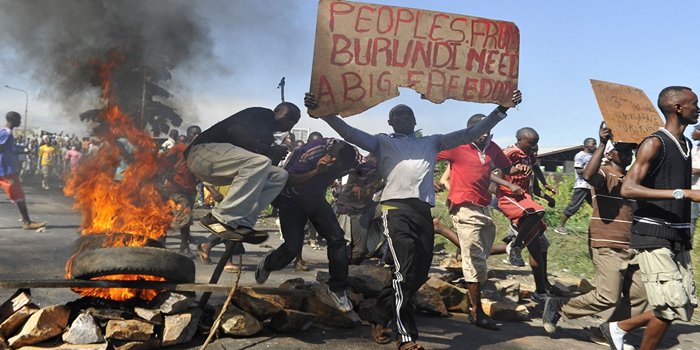After months of deliberations, the international Criminal Court says it will investigate allegations of imprisonment and violence in Burundi, which has been by experiencing unrest since last.
Since April 2015, 700 people have allegedly been killed, 4,300 have been arbitrarily detained, and several hundred people (800 according to some sources) have been forcily disappeared. Hundreds of other people have been tortured and dozens of women have been sexually assaulted. As a result of the conflict in Burundi, more than 250,000 Burundians have already fled the country. The violence started when President Pierre Nkurunziza launched a bid for a third term in office and then won a disputed election in July. At least three armed rebel groups have since emerged in the country.
Announcing a preliminary examination, the International Criminal Court’s prosecutor Fatou Bensouda said on Monday she had seen reports of imprisonment, torture and rape.
“At least 3,400 people have been arrested and over 230,000 Burundians forced to seek refuge in neighbouring countries,” she said in a statement.
Preliminary examinations at the court, based mainly on publicly available information, can last months or years before leading to a possible full investigation. Only then can criminal charges be brought against individuals suspected of war crimes or crimes against humanity.
Western powers and regional states fear Burundi could slide back into the ethnically charged conflict that characterised its 1993-2005 civil war.
Opponents accuse Nkurunziza of violating Burundi’s constitution and a peace agreement that ended the civil war by running for a third term. The president and his supporters cite a court ruling that said he could run again.
At the weekend, a Burundian army officer who had been held in captivity by a rebel group was handed back to his unit, the International Committee of the Red Cross said. See video







